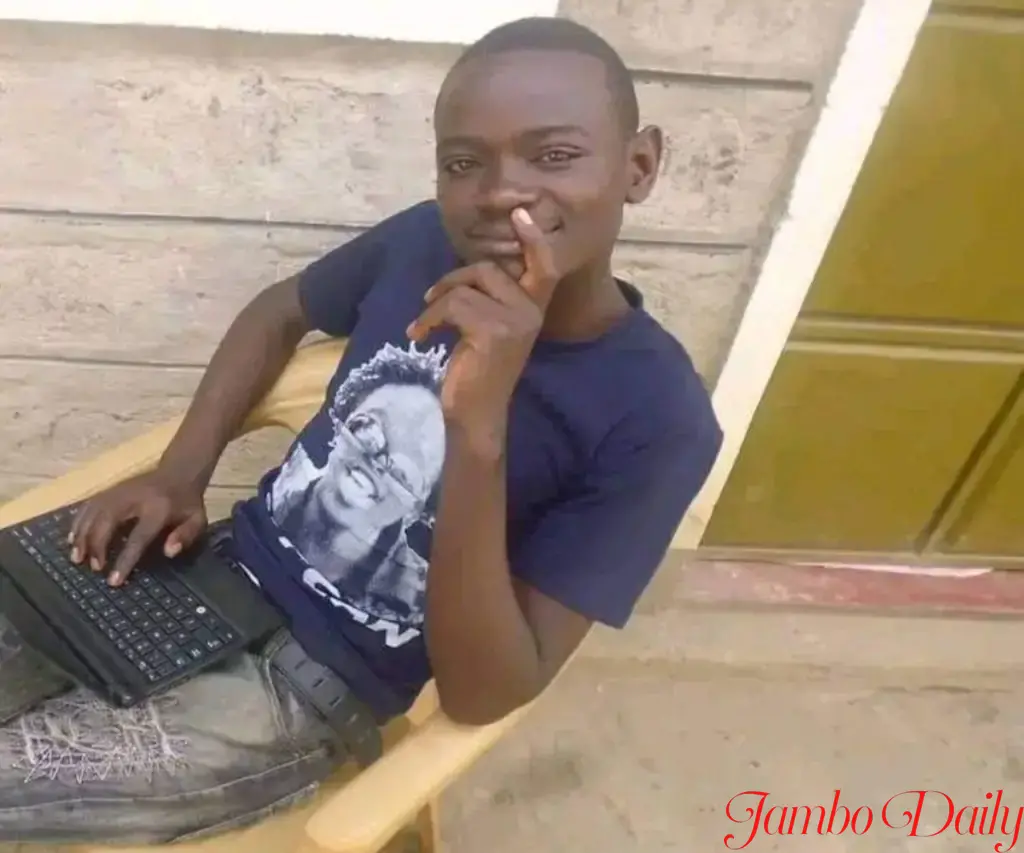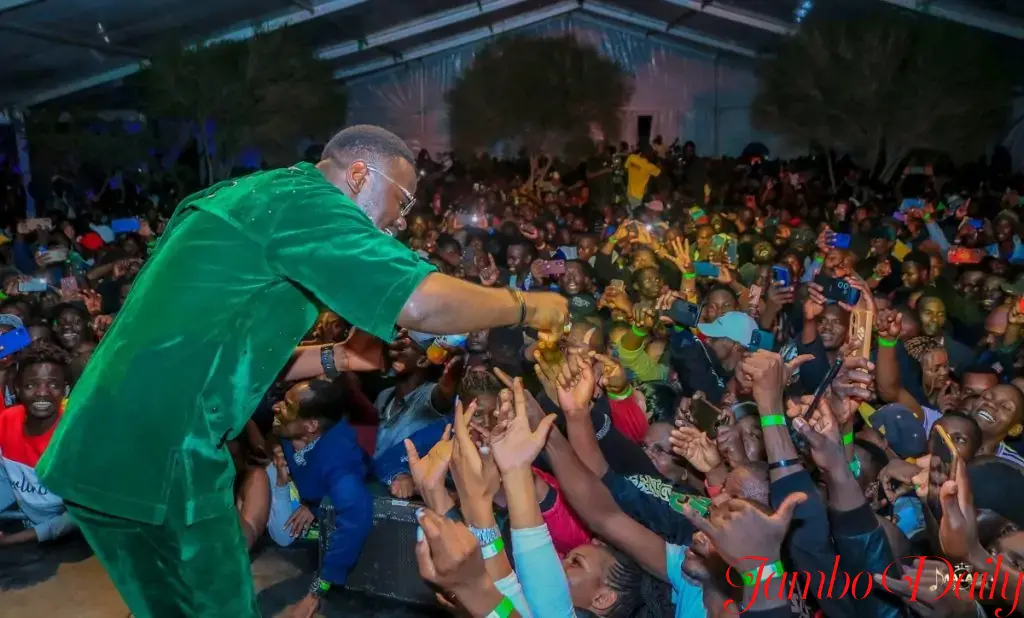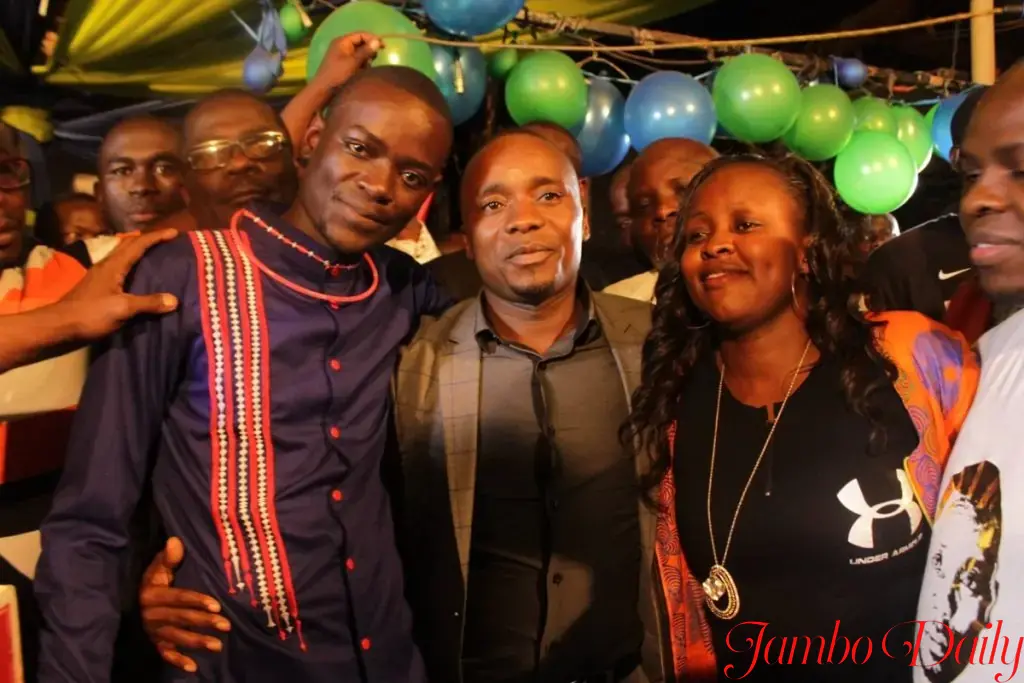
Prince Indah’s story, from Mjengo Site to a Sensational Kenyan Musician
Prince Indah’s story is one of a kind, he has stood against all odds to become one of the most influential ohangla musicians in Kenya.
Several years ago, in the bustling city of Nairobi, a young man named Evans Ochieng Owino emerged from humble beginnings to become one of Kenya’s most influential musicians.
Prince Indah’s story begins in the informal settlement of Huruma within Nairobi City. Evans who later came to be known as Prince Indah, was born on 9th August 1994 and he is the third born of five children in the Owino family.
“I come from a small village in Ugunja, Siaya County. But I was born here in Nairobi, the informal settlement of Huruma. I studied at Daima Primary School – Huruma until class 3, and then after my dad’s death, we shifted back to the village,” Prince Idah shares.
His boyhood was split between the Nairobi neighborhood of Huruma and the small community of Oloma Murumba in Rambula North, Ugunja, Siaya County, where he migrated after his father, Meshack Owino, died.

Growing up in a poor home, Prince Indah’s life was filled with obstacles and tenacity.
“I, Winnie’s brother, grew raised in poverty. At a young age, hardship taught me a lot. “I, Indah, stayed with the elderly as a toddler,” Prince Indah sings in his song Mashabiki.
Prince Indah attended Oloma Murumba Primary School, which was located in the village on the family’s farm. Despite his difficulties, he completed his KCPE and received an outstanding 360 marks.
He later went to Ndovoini Mission School in Machakos for secondary education, where he discovered his talent for singing. Prince Indah’s musical skill bloomed when he became a praise and worship leader in high school.
Due to his mother’s illness, he was forced to drop out of school in Form 3 to support the family. He took up masonry work in Mathare while caring for his ailing mother, Caroline Achieng’, and handling their household affairs.
“I did not take my KCSE exams.” I dropped out of school because my mother grew ill and there was no one to care for her. I was supposed to start Form 4 in 2014, but I had to quit in Form 3. I returned to Mathare, where I was staying with my mother, and began doing mjengo,” the 29-year-old recalls.
The encounter with his uncle, Emma Jalamo, a singer famed for his performances in the local club scene, was a watershed moment in Prince Indah’s life. Prince Indah revealed his wish to follow in Jalamo’s footsteps after hearing his songs.

Read also, Samidoh’s Biography, Age, Career, Education, Wife, Family, and Net Worth
His uncle, at first dubious, questioned his suitability for the music industry. Prince Indah’s determination and devotion, on the other hand, won over Jalamo, who eventually took him under his wing.
Beginning as a player of the ‘Ongeng,’ a hand-held metal instrument, Prince Indah demonstrated his voice aptitude, impressing his uncle, Opija Ka Elly.
In July 2014, his weekly wage doubled from Ksh.3,000 to Ksh.10,000, drastically altering his life. This was after he was allowed to sing in one of Jalamo’s concerts, which he did, impressing his uncle and musical father. Tragically, Prince Indah’s mother died barely two months later.
“So I struggled on with Mum, but her illness worsened. ‘Mum’s sickness has overwhelmed me,’ I informed my elder brother. Come and get her. He came and picked her up, and my mother died after a week,” Prince Indah painfully recounts.
Despite the setback, he persisted in his artistic endeavors. While still working with Emmah, he wrote his debut album, “Cinderella,” in 2015. He recorded his second album and formed his band, Malaika Musicals, the following year.
Prince Indah addressed his uncle in 2016 with thanks and a daring declaration. He stated his determination to strike out on his own. Emmah Jalamo, who was encouraging and understanding, wished him luck. Prince Indah launched his solo career with unflinching confidence.
“On December 23, 2016, I told him: You know you’ve helped me since you welcomed me, and my life has never been the same since That is not something I can take for granted. I sat him down and told him that I needed to venture out on my own,” Indah recalls of his conversation with Emmah Jalamo.

“And if I don’t succeed, please welcome me back because I didn’t leave on a bad note.” “He said, all the best, go try your luck,” he continues.
His debut appearance at Egesa Villa in Umoja marked the start of an extraordinary journey. Prince Indah’s popularity skyrocketed, and with each succeeding show, he gained momentum.
The song “Nyakisumo Part 2,” which was published in May 2017, proved a breakthrough, paving the way for new prospects. He is now a married man with a lovely daughter named Camara.
Janabi, which means prophet in Arabic, was the artist’s stage name since he believed that a good musician is a prophet. Furthermore, the name Wuod Nyandare underlined his ancestry and link to his mother’s lineage.
“My mother is from Andare. So I’m a Nyandare son and an Andare daughter,” he explains.

Wuod Nyandare has released five albums to date, with a sixth on the way. Some of his forthcoming singles include Ibiro Disemba Kose Pasaka, Jo Fitina, and Chunya Yomba.
Among his many hits are Osiepe (friends), Mashabiki (fans), Duk Jawiro (Nakedness Rorates, which means Life is a Cycle), Nyar Joluo (Daughter of the Luo), Chike Hera (Laws of Love), Double Double, and Hera Onge Wuon Go (Love Has no Owner or Specialist).
Prince Indah’s story is one of perseverance, passion, and the pursuit of aspirations in the face of adversity.
